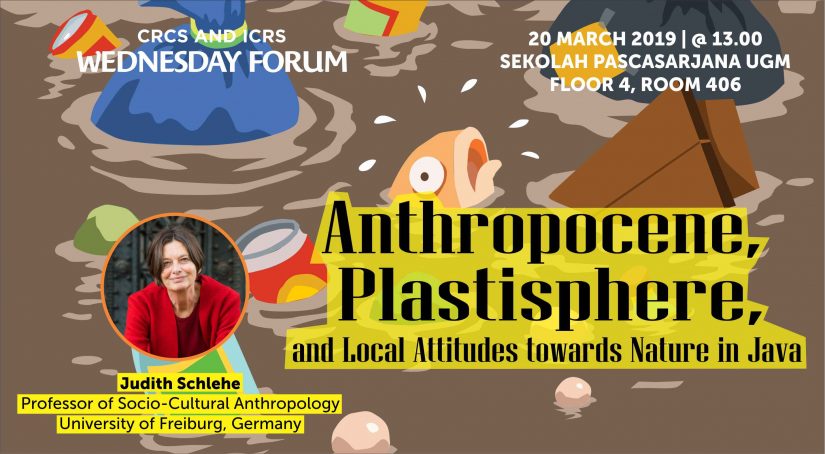
Waste and pollution affect all humans as well as other-than-humans. The globalized environmentalist discourse tends to ignore local diversity of waste practices, and this discourse emphasizes a new feeling of entanglement with nature to transform the waste problem. Yet my fieldwork in Java revealed that most actors do not consider ideas of – and relations to – nature to be crucial. Religious and spiritual relatedness to the environment are rarely connected to their everyday (waste) practices. Rather, what counts for the individual is the immediate social environment. This talk refers to the mobilization of the local social and moral world. It discusses examples of Javanese ambivalence about spiritualized landscapes/eco-religions, as well as practical attitudes towards nature.
Judith Schlehe is Professor of Socio-Cultural Anthropology at the University of Freiburg, Germany. She has conducted extensive fieldwork in Indonesia over the last three decades. She has also published widely on religious dynamics, cultural politics, globalisation and transcultural issues, gender, the anthropology of disaster, and popular forms of representing cultures. Her current research projects are on Indonesian alumni from the Middle East and on waste issues in Indonesia.
Look at the full poster of this event here.

